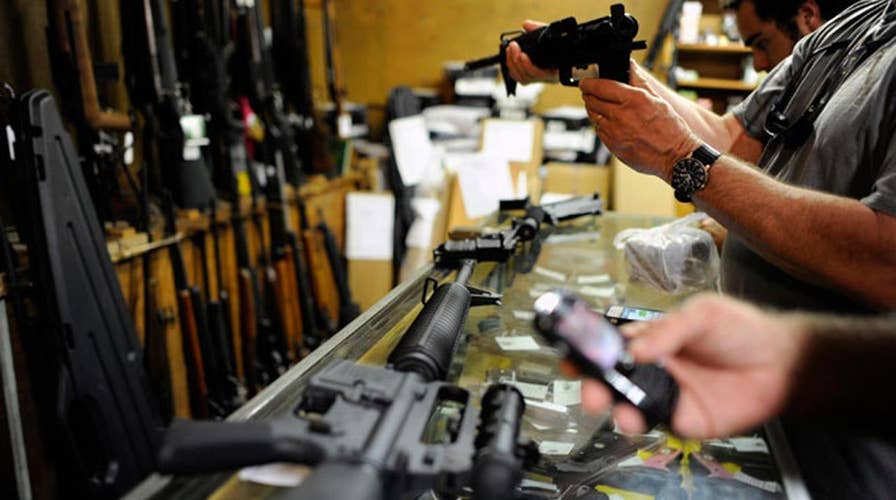The debate over gun control back in focus
Independent Women's Forum Policy Analyst Patrice Lee Onwuka and Democratic Strategist Robin Biro on the debate over gun control.
Strict gun laws passed in two states to require background checks for every firearm sale had virtually no effect, a new study has found.
Gun violence experts from the Center for Gun Policy and Research and the Violence Prevention Research Program conducted a study in Washington state, Colorado and Delaware to analyze whether state laws requiring more background checks actually resulted in more checks.
The results, published in medical journal Injury Prevention, suggest the laws had little impact.
Delaware was the only state that saw apparent results, with an increase ranging from 22 to 34 percent based on the type of firearm. But according to the study, "no overall changes were observed in Washington and Colorado."
The study said data "external to the study" suggested Washington saw a “modest, but consistent” increase in background checks for private-party sales, and Colorado saw a similar increase in checks for non-gun show sales.
“These aren’t the results I hoped to see. I hoped to see an effect. But it’s much more important to see what’s actually happened,” Garen Wintemute, one of the study’s authors, told The Guardian.
So what happened?
The study does not reach a definitive conclusion as to why background checks did not jump -- but it could be a combination of poor enforcement and people choosing not to follow the law.
“Non-compliance may explain the lack of an overall increase in background checks in Washington and Colorado,” the report said.
Federal law requires licensed gun sellers to conduct background checks on all buyers through NICS—the National Instant Criminal Background Check System. But private sellers without a federal license do not have to meet the same requirement. The state laws in question sought to cover nearly all gun sales, including among private parties.
In response, according to the study, there was a “well-documented public ‘I will not comply’ rally” at the Washington state capital, where firearms were openly transferred between private parties without background checks.
“There were also gun shows where non-compliance was encouraged and public calls from pro-firearm organizations to not comply with the state’s new CBC policy,” the report said.
The report, which comes amid a renewed gun control debate in the wake of the Las Vegas massacre, also blamed the findings on “insufficient enforcement of the law” by state authorities. Law enforcement officials in Colorado reportedly stated they would not enforce the law, and some retailers reportedly declined to process background checks for private party transfers.
In Washington, law enforcement agencies announced there would be no arrests for selling guns at the non-compliance rally and gun show, according to the report.
Wintemute told the Guardian that the report shows “evidence that these policies may need more assertive enforcement,” saying advocates pushing for laws like these should question how to best “maximize opportunities for enforcement” and “remind” private party sellers that background checks are required.













































